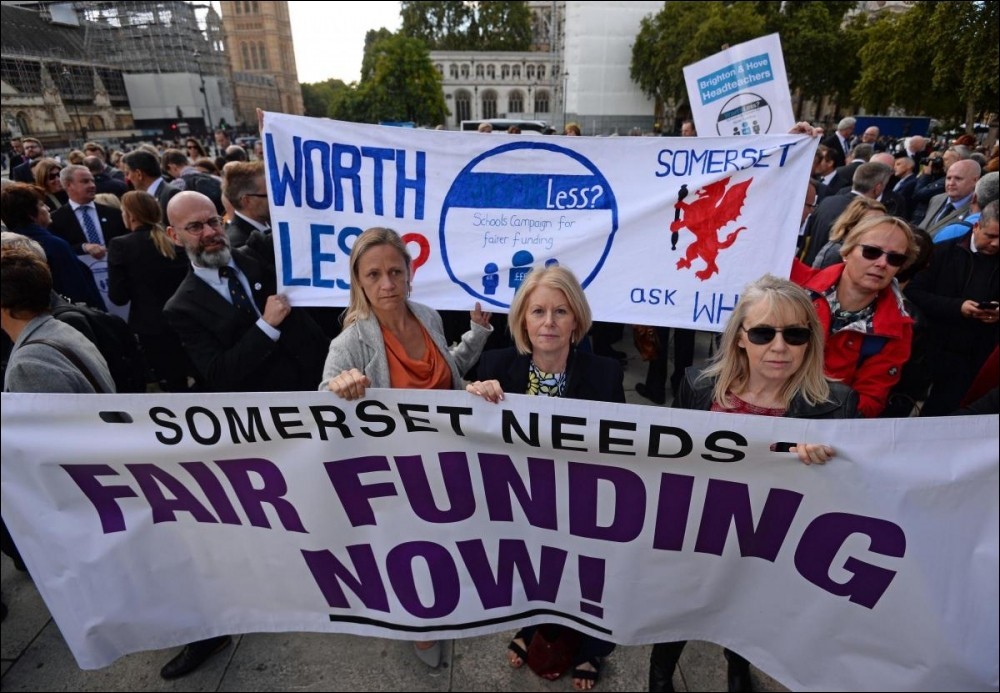3 May 2019

If your wages decreased by 8% in real terms, what could you no longer afford to buy?
I was very fortunate to be appointed as Head Teacher of Durham Johnston in February. The interview process was very robust and I was asked a large number of challenging questions by governors, students and teachers. In total I was asked over 120 questions across the two days. At no point, however, was I asked any of the following questions:
Which subjects should the school cut? Should we cut Art, Music, Languages or Drama?
At what point should we ask parents to pay for new books, or to buy basic provisions for cleaning the school or for feeding students?
Should we close on a Friday afternoon to save money?
As politicians thrash around in a lather of ideology, desire for personal advancement, leaks and party scheming, important areas of public policy are being dangerously neglected. A great many schools have already had to consider the above options, others will be doing so in the next year unless the government acts decisively. I’m sure that many parents reading this will have similar experiences in their own area of employment. There have now been 9 consecutive years of austerity and it is fair to say, in educational terms, that every act of austerity is an act against children. Therefore, it is important that those working in the interests of children speak clearly about the potential damage caused by inadequate funding.
Robert Halfon, the Chair of the House of Commons Education Select Committee, has regularly asked those seeking additional funding how much is needed. Last year he asked the question that leads this page. What is the true cost of education? The Association of School and College Leaders commissioned a report in the hope of answering that question. Their report was published in March 2019.
The report (https://www.ascl.org.uk/download.C24397F8-6E66-4248-84F0B37723157485.html) warns that primary and secondary schools in England require £40.2 billion of funding in 2019-20, but are only set to receive £34.5 billion.
ASCL calculated the figure by working out how many teachers and support staff will be needed to support the number of pupils in the system next year. An ASCL survey of 407 secondary Headteachers found that almost all respondents (404) had made budget cuts since 2015, with 60 per cent saying the cuts were “severe”.
That £5.7 billion gap has a number of significant practical implications and school leaders, teachers and parents should all be worried about the long term sustainability of such an underfunded system. A fairly funded education system is integral to the country’s future and there are many students who will only access cultural opportunities at school, who only get one chance to study a particular subject.
If you are equally concerned about fair funding, Schools North East have launched a campaign to address the 8% real terms funding shortfall.
Over the last eight years education funding in England has fallen, in real terms, by 8% and each individual pupil is now being underfunded by an average of £500 annually. This is unsustainable and unacceptable. Children’s education is essential to their, and our, futures. #FundOurFuture is a campaign asking Government to commit to plugging the funding gap. We need your help to present a united front, challenging Government to dedicate the vital funds UK education needs and deserves.
https://www.fundourfuture.org.uk/

I would encourage all parents and carers to engage with this debate and, if nothing else, to read the available reports and articles. Politicians and public commentators often put forward schools as institutions in which society’s ills can be addressed. Whether that is the purpose and role of schools is a discussion for another time, but what is glaringly obvious is that schools will not find it possible to fulfil even their primary function if the current funding crisis is ignored by those with the power to take action, but who choose not to.
Mr O’Sullivan
